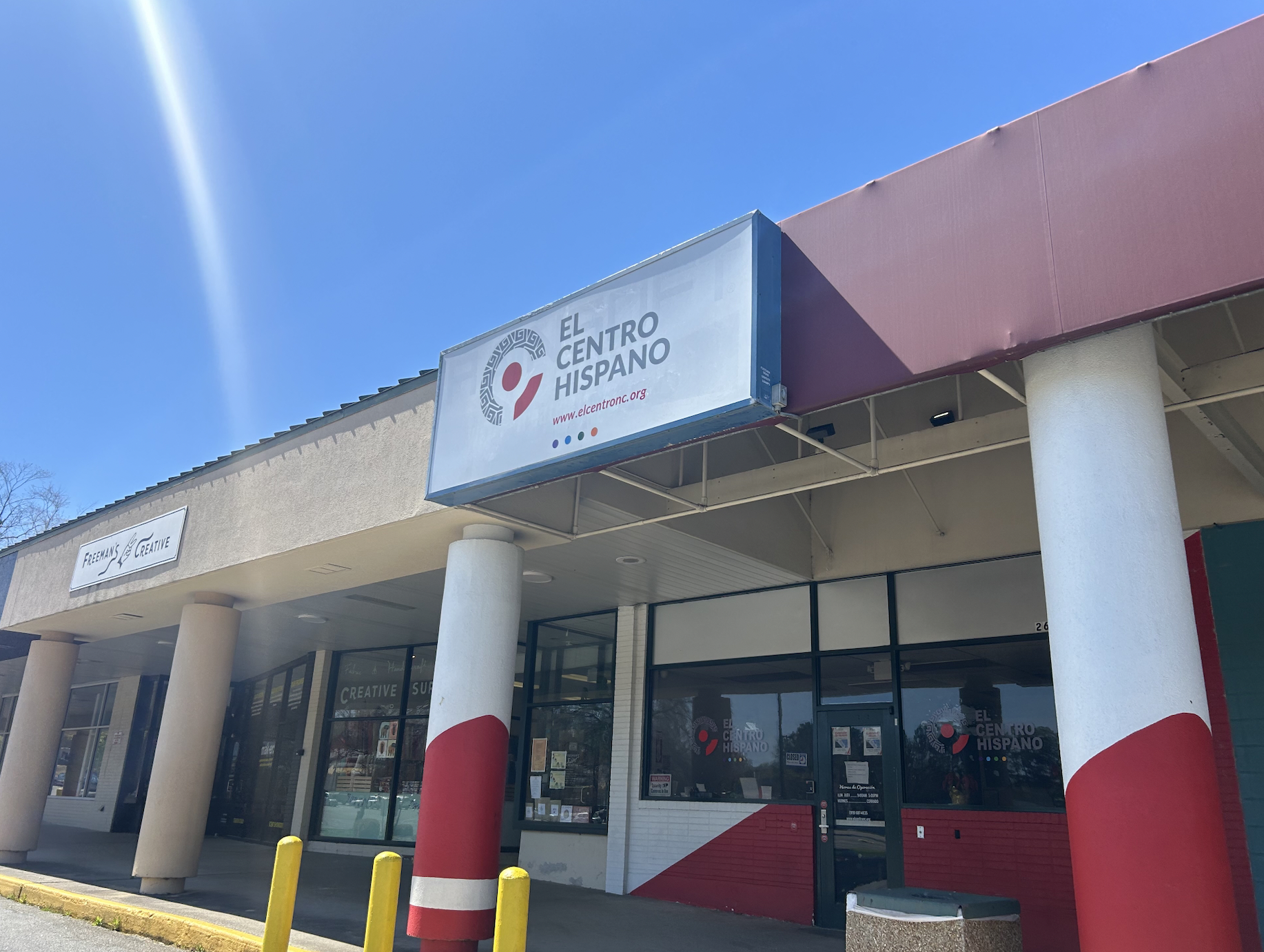
The outside of El Centro Hispano's location in Durham, N.C. Photo by Celia Funderburk
Tuesday, April 9, 2024
By Celia Funderburk
With election season approaching, members of the Durham Latinx community reflect on the feeling that their issues and struggles are not always supported and instead, the community is used for political gain.
Ivan Almonte, senior Durham community organizer, said Durham is known as being a progressive city — but it is not always progressive for Latinx people.
He said it is hard to know if people actually support him and the Latinx community’s issues, which leads him to question people’s involvement in the community.
“Are you supporting us right now?” he said. “Or ‘What are you trying to benefit from?’ or “Are you trying to look cute and send the message that you’re cool with immigrants?’”
Almonte said large support for the Latinx community is seen when it is a widely publicized topic, such as the U.S.-Mexico border. He said he wants to see this same energy and sentiment in every Latinx issue.
Gloria De Los Santos, a Durham community advocate, said the city is very progressive for African Americans, like herself, but thinks it can be biased against other nationalities.
“I would say from a national perspective, especially in this political climate right now, all nationalities are being used as a political pawn to get back into the office,” De Los Santos said.
She said politicians use immigrant issues to instill fear in voters and put the Latinx community down. She said these acts of institutional racism are structured to keep the community away from the possibility of bettering themselves.
“So I would feel, if I was a Latino descendant, I would feel the same way,” she said. “You only use me just to boost this political campaign when it’s feasible for you. But when I really need you — you’re nowhere to be found.”
De Los Santos served the Latinx community in Durham as director for advocacy at El Centro Hispano, the longest-serving Latino organization in North Carolina. The center works to serve and advocate for Hispanic and Latinx populations.
Mario Alfaro, the legislative liaison at El Centro Hispano, said immigration is always a topic of conversation during the election cycle, and nothing ever happens. He said immigration is used as a political instrument for campaigns.
Alfaro said he understands why people are upset because they are reinforced to believe these issues only matter during political campaigns. Once politicians are elected, nothing with immigration ever changes, he said.
“That’s why I can understand these people are upset,” he said. “Many people said, ‘I don’t want to participate, I don’t want to know absolutely anything about politics because I don’t want these people to use my family situation as a political campaign issue, a political campaign topic. We are more than that.’”
Alfaro said he has worked closely with the six Durham representatives in the General Assembly and feels they support the Latinx community and have empathy for their issues.
A 2023 survey of over 3,000 eligible Latinx voters in North Carolina by UnidosUS shared the largest top issues voters want elected officials to address include inflation, health care and jobs. El Centro Hispano works to address these issues with programs and services.
Alexandra Valladares, the at-large member of the Durham Public Schools Board of Education, said the school system also experiences people being used for diversity. She said people need to start thinking beyond just saying they support Latinx people and act.
“Not just how can we showcase the diversity that we have without actually paying attention to the needs that these diverse families are expressing and asking for,” she said. “The kinds of support they want, the kinds of things they have been experiencing.”
Valladares has worked to address Latinx issues, such as the language barrier, by creating the DPS Multilingual Resource Center.
Alfaro said there is community support for Latinx people in Durham, but there are barriers that make it hard to see.
“I think it’s natural that some people, their perception is that they are not welcome, or they’re not receiving help or they’re not being part of the community, because they cannot even communicate with their neighbors — they don’t speak the same language.”
Alfaro said El Centro Hispano supports the Latinx community to jump barriers, but many people don’t know it can help, even after being in the community for 33 years.
Moving forward, De Los Santos said Latinx problems and issues need to become a focus for Durham.
“I think Durham is really progressive when it comes down to talking about these issues,” she said. “But I think Durham, other cities and counties, if they really want to make a statement, then they should actually create some form of statewide legislation or create some type of campaign where it actually forces the hand of our GA to address this issue.”
Edited by Jessica Walker and Phillip Le